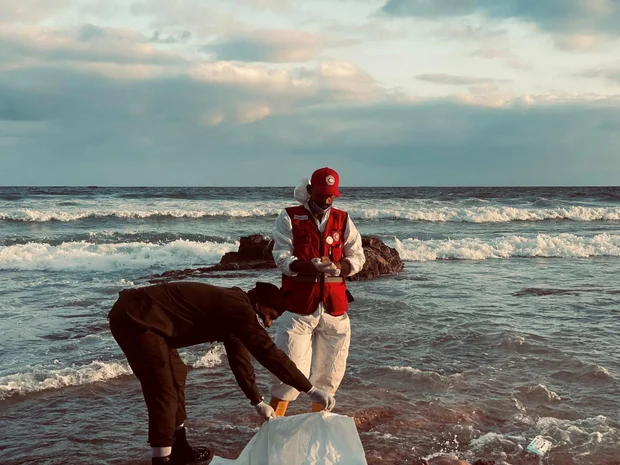Written by Were Kelly
At least 37 migrants are feared drowned after the overcrowded rubber dinghy they were travelling in capsized in the Mediterranean Sea off the coast of Libya, in the latest shipwreck on the world’s deadliest migration route.
The Italian coastguard mounted a major rescue operation on Thursday, saving 150 survivors from the water, many of whom were suffering from severe dehydration after being adrift for days.
The boat had departed from the Libyan port city of Zuwara, a common launching point for human traffickers, and was carrying migrants predominantly from Sudan and Somalia.
Among the 37 confirmed dead, 29 were Sudanese nationals, fleeing a brutal civil war that has created one of the world’s worst humanitarian crises.
Survivors recounted a harrowing journey, stating they had been at sea for six days with no supplies before their vessel began to take on water and ultimately sank.
The International Organization for Migration (IOM) issued a stark statement. An IOM spokesperson said, “This is another preventable tragedy. It highlights the urgent need for safe and legal pathways to prevent people from risking their lives at the hands of ruthless smugglers.”
The death toll in the Mediterranean for 2025 has now surpassed 1,000, a grim statistic that has remained stubbornly high for a decade.
The European Union’s border agency, Frontex, noted that the central Mediterranean route remains its primary focus, but its mandate is limited to surveillance and supporting, rather than leading, rescue operations.
The broader context of this endless tragedy is a failed European migration policy and chronic instability in North Africa.
The EU has for years supported the Libyan coastguard in intercepting migrant boats and returning them to Libya, where they are often placed in detention centres notorious for abuse, torture, and extortion.
Human rights organisations have consistently condemned this policy, arguing it violates international law and fails to address the root causes of migration.
With conflicts raging in Sudan and the Sahel, and poverty deepening across much of Africa, the flow of desperate people attempting the crossing shows no sign of stopping, ensuring that the waters off Libya will continue to be a mass grave.
Sources: Independent, Al Jazeera.



















